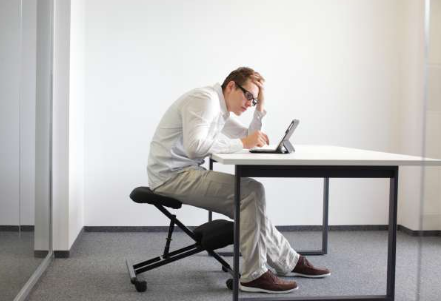Why Your Posture Matters More Than You Think

Most people don’t really notice their posture until something starts to hurt. It might be a sore neck after scrolling on a phone for too long, or a stiff back after sitting in class or at work all day. Posture seems like such a small thing, but it plays a bigger role in how the body feels than most realize. When posture is good, the spine lines up the way it should, muscles don’t get overworked, and everyday movement feels easier. When it’s bad, pain slowly builds up, and the body starts sending signals that something is off.
How Posture Affects More Than Just Your Back
When people think about posture, they usually picture standing tall with shoulders pulled back. That’s part of it, but posture isn’t only about how someone stands. It’s about the position of the spine all day long—sitting, lying down, walking, even bending over to tie shoes. If the body spends hours in a slouched or twisted position, muscles tighten in the wrong places, while others get weak from not being used enough.
Bad posture doesn’t just cause back pain. It can lead to headaches, stiff shoulders, sore hips, and even problems with breathing. When the chest is compressed from hunching forward, lungs can’t expand as much, which makes taking deep breaths harder. Over time, this puts more stress on the body than most people realize.
Some people look for relief through stretching, exercise, or even chiropractic care. In fact, ring dinger chiropractic techniques have become popular because they target spinal alignment in a very direct way. While not everyone needs something that intense, it shows how much attention posture and spinal health are getting today.
The Everyday Habits That Mess with Posture
Poor posture usually doesn’t happen overnight. It’s a result of small daily habits that add up over time. One of the biggest issues is how much sitting people do now. Whether it’s long school days, hours at a computer, or gaming at night, sitting too much makes it easy to slouch. Once the body gets used to leaning forward, that position starts to feel normal, even though it’s slowly putting more stress on the spine.
Phones also play a big part. Tilting the head down to look at a screen puts a surprising amount of weight on the neck. The more time spent scrolling, the harder the neck muscles have to work, and the sooner pain shows up.
Even things that seem harmless, like carrying a heavy backpack on one shoulder, can throw off balance and affect posture. When the body leans to one side to make up for the extra weight, the spine shifts out of alignment. Over time, this small imbalance can lead to bigger issues.
Why Good Posture Feels Better
The difference between bad and good posture is more noticeable than people think. Standing or sitting with proper alignment doesn’t just look better—it makes everyday tasks feel easier. Muscles don’t have to strain as much, so energy levels stay higher. Movements feel smoother, and there’s less stiffness after a long day.
Good posture also helps with focus. When the body isn’t fighting against itself, the brain can concentrate better. Even breathing improves. With shoulders back and the chest open, lungs take in more air, which makes activities like running, walking, or even just climbing stairs less tiring.
The body is designed to move in balance. When posture keeps everything lined up, the spine does its job of supporting the body without creating pain.
Can Posture Really Be Fixed?
The good news is that posture isn’t permanent. Even if someone has slouched for years, there are ways to improve it. It starts with paying attention. Catching small habits—like sitting hunched over or crossing legs too much—helps break the cycle. Standing up and moving around during long sitting sessions also makes a difference.
Exercise plays a big role, too. Strengthening core muscles supports the spine, while stretching tight muscles relieves tension. For people who need more help, seeing a chiropractor or physical therapist can provide extra guidance. They can point out what’s causing the imbalance and suggest specific adjustments or exercises.
Changing posture doesn’t happen overnight. It takes time, patience, and small daily corrections. But the benefits make it worth the effort. Less pain, more energy, and better movement are all signs that the body is working the way it should.
Read Also: How to Prevent Plumbing Problems in Older Homes
Posture and the Future You
Thinking about posture now can save a lot of trouble later. Back pain is one of the most common reasons adults visit doctors, and many of those problems start years earlier. Paying attention to posture in everyday life—whether sitting at a desk, walking to school, or relaxing on the couch—sets up the body for fewer problems down the road.
Technology isn’t going away, and neither is sitting for long hours. That means finding ways to balance these habits with good posture is more important than ever. Simple changes like raising screens to eye level, carrying backpacks correctly, and moving more throughout the day can all make a big difference.
The Takeaway
Posture might not seem like a big deal, but it affects almost everything the body does. From breathing to energy levels to preventing pain, the way the spine is positioned plays a huge role in overall health. Small choices every day either help or hurt posture, and the effects build up over time.
The good news is that change is possible. By noticing habits, moving more, and keeping the spine in line, posture can improve. It’s not about standing perfectly still or being stiff—it’s about balance, comfort, and making sure the body feels good both now and in the future.




